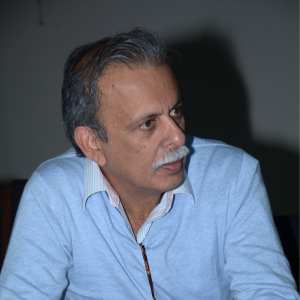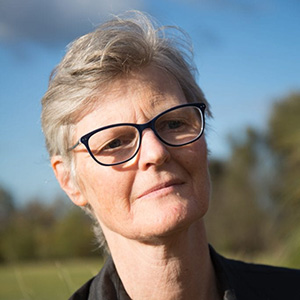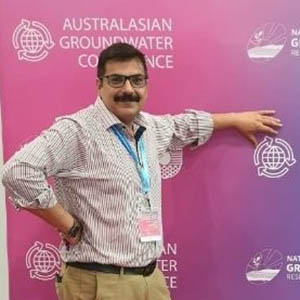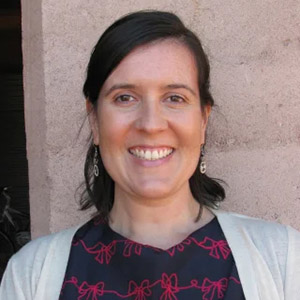Connect and collaborate
We are looking for researchers, students, funding and partners to help take our research to the next level.
Australia and Pakistan share the challenges of developing agriculture within water-scarce, salinity-affected landscapes.
As with the Murray-Darling Basin, salinity in the Indus Basin can be categorised as both primary (i.e. a natural phenomenon) and secondary (i.e. human-induced salinity/waterlogging from irrigation).
Increased dependence on poor-quality groundwater, due to limited and unreliable surface water supplies, is accelerating the extent and severity of land salinisation.
This initiative focused on identifying and exploring practical strategies for individuals living and working in salinity-affected agricultural regions of the southern Indus Basin in Pakistan. Using a collaborative approach grounded in the principles of Stakeholder Engagement for Research and Learning (SERL), the project worked closely with rural and coastal communities impacted by salinity, encouraging them to take an active role in shaping sustainable adaptation practices.
The Adapting to Salinity in the Southern Indus Basin (ASSIB) project was initiated to develop and investigate adaptation options and strategies with people managing and living in salinity-affected agricultural landscapes in the southern Indus Basin.
Our response to this challenge built on the growing acceptance that farmers’ participation is vital to the success of field-level practice change programs, including those involving salinity management for those living in salinity affected landscapes.
Our approach involved selecting and engaging a set of so-called ‘bright spot’ farming communities who have the capacity to co-design on-property research activities to be undertaken as a co-inquiry investigation with ASSIB researchers and other relevant stakeholders.
The project supported knowledge exchange and skill development across farming communities, academic institutions, government bodies, and other key stakeholders. It also helped pave the way for broader implementation of proven salinity management techniques, highlighting the critical role of inclusive community participation—especially involving women and youth—in fostering long-term resilience.
The project builds on research and outputs from several ACIAR funded projects in Pakistan, including three managed by Charles Sturt’s former Institute for Land, Water and Society, namely:
Scientific investigations into salinity patterns and effects, including studies of surface water, satellite imagery, and groundwater modeling, have enhanced the capacity for strategic planning and informed decision-making at multiple levels.





These reports are outputs from the Improving groundwater management to enhance agriculture and farming livelihoods in Pakistan Project (2016-2021)
Mitchell, Michael., Ahmad, Mobin-ud-Din., Allan, Catherine., Baig, Irfan A., Barrett-Lennard, Edward G., Channa, Muhammad Yousif., Heaney-Mustafa, Sandra., Khan, Mobushir R., Lashari, Bakhshal K., Punthakey, Jehangir F., Qureshi, Asad S., Soomro, Naveed Ali. (2025) . Adapting to Salinity in the Southern Indus Basin (ASSIB) - Final Report. ACIAR
Samoo, Akhtar Hussain, Mitchell, Michael, and Allan, Catherine (2025). A Strategy for Building Capacity to Adapt: Using a Capitals-Based Capacity Assessment Approach with Community Groups in Indus Delta, Pakistan. Gulbali Report 19. Gulbali Institute, Charles Sturt University, Albury, NSW.
Zakir-Hassan, G., Punthakey, J.F., Shabir, G., & Hassan, F.R., (2024). Assessing the potential of underground storage of flood water: A case study from Southern Punjab Region in Pakistan. Journal of Groundwater Science and Engineering, 12(4): 387-396. https://doi.org/10.26599/JGSE.2024.9280029
Allan, C. Baloch, T., Channa, M. Y., Channa, M. A., Heaney-Mustafa, S., Jabeen, N., Kumbhar, B., Malik, I. N., Mohiuddin, I. Mitchell, M., Riaz, M. F., Rubab, A., Samoo, A. H., Zahid, S. M. A. & Zaman, B. (2024). Adapting to Salinity in the Southern Indus Basin: Stories of Change. Gulbali Report 4. Gulbali Institute, Charles Sturt University, Albury, NSW 2640.
Raheem, A., Saifullah, M., Punthakey, J. F., Zakir-Hassan, G., & Baig, I. A. (2024). Modelling Climate Change Impacts and Adaptation Strategies for Managing Groundwater Resources in Southern Punjab. Gulbali Report 5. Gulbali Institute, Charles Sturt University, Albury, NSW 2640
Raheem, A., Saifullah, M., Punthakey, J. F., & Baig, I. A. (2024). Assessing Groundwater Monitoring in the Southern Bari Doab and Guidance for Strengthening Groundwater Monitoring across Punjab. Gulbali Report 6. Gulbali Institute, Charles Sturt University, Albury, NSW 2640
Jamali, S., Punthakey, J. F., Ahmed, W., Qureshi, A. L., Raheem, A., & Ahmed, M. (2024). Modelling Climate Change Impacts and Adaptation Strategies for Managing Groundwater Resources in Pinyari Canal Command Area and Coastal Sujawal, Sindh. Gulbali Report 7. Gulbali Institute, Charles Sturt University, Albury, NSW 2640
Ahmed, W., Punthakey, J. F., Jamali, S., Qureshi, A. L., Shaikh, S. (2024). Assessing Groundwater Monitoring in Sujawal and Guidance for Strengthening Groundwater Monitoring across Sindh. Gulbali Report 8. Gulbali Institute, Charles Sturt University, Albury, NSW 2640
Faried, H. N., Ahsan, M. B., Baig, I. A., ul-Haq, T., Mohiuddin, I., Riaz, M. F., Sarfraz, B., Raza, N. (2024). Summary of Co-Inquiry Research Experiences with Salinity-Affected Jalalpur Farming Communities. Gulbali Report 9, Gulbali Institute, Charles Sturt University, Albury, NSW.
Qureshi, A. L., Memon, K. S., Zaidi, A. Z., Ullah, A., Kumbhar, B., Zaman, B. (2024). Summary of Co-Inquiry Research Experiences with Salinity-Affected Farming Communities along the Malwah Distributary. Gulbali Report 10. Gulbali Institute, Charles Sturt University, Albury, NSW.
Heaney-Mustafa, S., Ashraf, M. (2024). Building and Scaling Out Knowledge: The Practice of Co-Learning with Farmers Gulbali Report 11. Gulbali Institute, Charles Sturt University, Albury, NSW.
Khan, M.R., Barrett-Lennard, E.G., & Punthakey, J.F. (2024). Mobile and Web Applications for Land and Water Evaluation Gulbali Report 12. Gulbali Institute, Charles Sturt University, Albury, NSW.
Jarwar, A., Samoo, A. H., Malik, I. N., Soomro, N. A. (2024). Living with Salinity in the Southern Indus Basin through Aquaculture Gulbali Institute Report No.13. Gulbali Institute, Charles Sturt University, Albury, NSW.
Soomro, K. B., Samoo, A. H., Malik, I. N., & Soomro, N. A. (2024). Living with salinity in the southern Indus Basin through saline agriculture. Gulbali Report 14. Gulbali Institute, Charles Sturt University, Albury, NSW.
Lashari, B. K., Memon, K. S. (2024). Adapting to Salinity in the Southern Indus Basin: Future Research Road Map for Living with Salinity. Gulbali Report No. 18. Gulbali Institute, Charles Sturt University, Albury, NSW.
Technical Reports
Ali, A. (2023). Improving salinity and agricultural water management in the Indus Basin, Pakistan: Issues, management and opportunities: A synthesis from a desk-top literature review. Gulbali Report 1. Gulbali Institute, Charles Sturt University, Albury, NSW 2640.
Heaney-Mustafa, S., Channa, M. Y., Baloch, T., Channa, M. A., Kumbhar, B., Mohiuddin, I. Riaz, M. F., Rubab, A., Samoo, A. H., Zahid, S. M. A. & Zaman, B. (2023). Stakeholder Engagement for Research and Learning (SERL): Theoretical Underpinnings and Guidelines for Facilitators. Gulbali Report 3. Gulbali Institute, Charles Sturt University, Albury, NSW 2640.
Journal Articles
Papers in conference proceedings
Technical reports
Journal Articles
We are looking for researchers, students, funding and partners to help take our research to the next level.